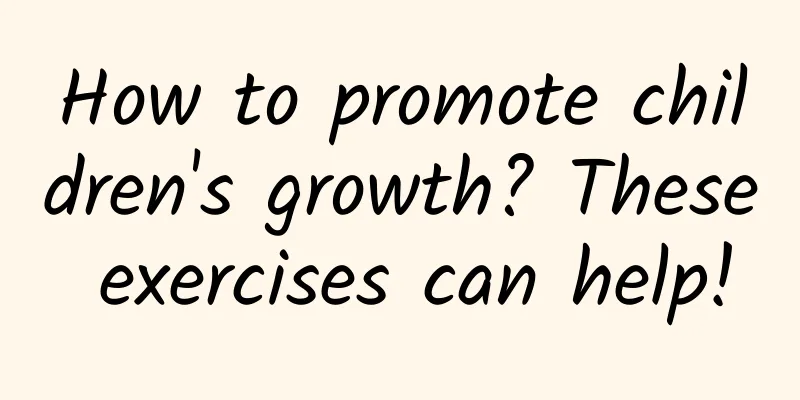Does science prove that night owls die early? Hold on, that's not true

|
In 2018, a study went viral with a sensational headline: "Unconventional sleep schedules lead to early death," meaning that "night owls" who go to bed late and get up late may die earlier. In fact, this is neither the conclusion of the study itself nor the conclusion of the researchers. But in the exaggerated scientific reports, who cares whether it is true or not. The study, originally published in the International Journal of Chronobiology, looked at the sleep patterns of more than 430,000 people over a six-and-a-half-year period. The data came from the National Health Service England and National Health Service Scotland registers. The researchers wanted to know if a night owl's sleep schedule could have a negative impact on health. After dividing nearly half a million people into four categories: true larks (so-called early birds, most likely to wake up with the sunrise), true owls (most likely to sleep with the sunrise), half-larks and half-owls, researchers reported some disturbing findings. More than 10,000 participants died during the study period. Of those, most deaths appeared to be from natural causes. The study did not attempt to link deaths to sleep deprivation, but rather to "comorbidities" — that is, the presence of two or more conditions in one person, such as psychological or neurological disorders or diabetes. As the degree of night owlness increased, comorbidities became more common, increasing the risk of early death. However, while the headline “Night Owls Die Young” is catchy, the real story is not that simple. The story behind the research There’s evidence that an unconventional night owl schedule can put people at risk for significant health problems, and the results of nearly every study on this pattern are troubling. However, Kristen Knutson, the first author of the paper mentioned above, warned that conclusions should not be drawn based on simple correlations. Dr. Knutson, an associate professor of neurology and sleep medicine at Northwestern University, told the Los Angeles Times that the real problem is that for night owls who live in an early-rising world, they go to bed too late but have to get up very early. His research also points to other behaviors that may increase health risks, mainly related to diet and exercise. For example, the existence of 24-hour gyms allows people to attend classes or exercise late at night or even all night, which was unheard of before. In addition, for those who need to eat late at night, the only options are fast food and greasy food. These factors all suggest that there's more to consider than just sleep itself. Every expert we spoke to said that if you get enough rest every night, eat a healthy diet, exercise, participate in meaningful social activities, and get some sunlight every day, even if you are a night owl, you are not at risk of overall poor health or dying earlier simply because you go to bed late. Dr. Knutson also showed in his research conclusions that this is indeed the case. Sleep habits change over time and technology Benjamin Franklin wrote in the 1735 edition of Poor Richard's Almanack: "Early to bed, early to rise, makes a man healthy, wealthy, and wise." People at the time agreed with this view, mostly due to objective conditions. At that time, it was more than a century before electricity was popularized, and people's work was still mainly concentrated in typical outdoor labor such as agriculture, animal husbandry and manufacturing. Night owls were often seen as lazy and idle, and only those who frequented bars, brothels, and were locked up in prison cells would sleep until the sun hit their buttocks. Stephen Innes wrote in his book "Creating the Commonwealth: The Economic Culture of Puritan New England" that at the time, the mainstream social concept was to avoid being a night owl at all costs. Two centuries later, the situation has remained largely unchanged. A 1942 Gallup poll showed that only 3% of Americans slept less than five hours a night, and most families averaged 7.9 hours of sleep a day. Night owls represent a statistical anomaly, an anomaly that was not, and perhaps still is, understood. Even with the advent of electricity, Franklin’s dictum was ingrained in Americans’ eagerness to lie down after nightfall. But things are starting to change. By 1954, more than half of American households had at least one television. By the early 1990s, computers had reached the same milestone. Just a few years later, more than half of Americans had access to the Internet. In 2013, Gallup polls again showed that the number of people sleeping less than five hours a night had surged to 14%. Americans are sleeping less than ever before, averaging only 6.8 hours. Being a night owl isn't all bad Now, one of the obvious advantages of early birds is that they work according to society's schedule. In contrast, night owls live completely according to their own body's schedule. But night owls also have their advantages. Studies have found that night owls are smarter, more creative, and more stable in their work than early birds. A 2009 study from the University of Liège in Belgium monitored early birds and night owls in a sleep lab for two nights. The researchers asked the participants to choose their own bedtime and wake-up times and asked them to take a test when they first woke up and a second test 10 hours later. In the first test, the two groups of participants performed roughly the same. But in the second test, the night owls performed significantly better than the early birds, suggesting that they are better at keeping their mental performance at a baseline level. Another study of more than 20,000 teenagers found that, on average, those who said they preferred to go to bed later were smarter and more creative than those who went to bed earlier. The findings held up across a variety of demographic variables, including race, education and religion. But while the study was extensive, it relied on self-reporting rather than objective observation. Don't blame you, blame society. Katherine Sharkey, an associate professor of medicine at Brown University, believes that going against the body's natural physiological preferences may be the real culprit behind night owls' health problems. “Night owls’ internal clocks prevent them from going to bed early, but they have to wake up early to work, so they never get enough sleep,” she said in an email. “I speculate that if night owls could live according to their preferred schedule, they would be less at risk of staying up late.” Daniel Gartenberg, a sleep scientist who has spoken about the benefits of deep sleep in a TED Talk, agrees. “To me, the problem is not when you sleep, but the misalignment between people’s natural sleep patterns and their 9-to-5 jobs,” he says. This is a real problem for night owls, whose bodies don’t adjust to sleep until the wee hours, but society insists that going to bed earlier is better. “Social pressures are driving more and more people to not get enough sleep,” Dr. Gartenberg said. In order to verify whether delaying the start time can solve the problem of children's lack of sleep, two high schools in a school district in Seattle delayed the start time of a class by one hour every day. It was found that these students slept an average of 34 minutes more. Although the extra half an hour of sleep seems insignificant, it actually increased the median final grade of the class by 4.5%. For most courses, this means half a grade: get an excellent or a good grade, pass or fail. This result was confirmed in a 2017 survey by the Centers for Disease Control and Prevention in the United States. The survey pointed out that only 1/4 of high school students can get the recommended 8 hours of sleep, and sleeping a few more hours every night can indeed bring them benefits. It’s not just students: A 2013 survey of more than 2,000 working adults showed that choosing one’s own work hours improves employee output. The survey, conducted by the research arm of architecture and design firm Gensler, found that choosing one’s own work hours and location can lead to higher job satisfaction, productivity, and positive attitudes toward one’s employer. Forcing night owls to become early birds, Is it worth a try? If you're a night owl, going to bed earlier could be worth a try if it means you get more sleep, Dr. Sharkey says. However, she also reminded that for some people this change is unreasonable because "they try hard to adapt to social demands, but they are negatively affected and feel very uncomfortable." While it may be possible for night owls to go to bed a little earlier by spending less time on their phones at night, cutting back on caffeine, sleeping at cooler temperatures or not eating before bed, these strategies won’t make a big difference in the long run. In a biological sense, it’s just a way of playing against yourself. The ideal solution, experts say, is to embrace your own natural rhythms, even if that means working as a freelancer or taking night classes instead of daytime ones. c.2019 New York Times News Service By Bryan Clark Compiled by: Yakumo Editor: Li Zi Compilation source: https://nytlicensing.com/story/qvTVGVgl/ |
<<: Why are they called cookies? How to make cookies
>>: Why can't people only eat meat or only eat vegetables? Omnivores are rare and powerful
Recommend
Pregnant woman stretches unconsciously while sleeping
During pregnancy, women need to be very careful a...
Irregular menstrual period with brown discharge
What should I do if my period is not clean and I ...
How big should your belly be at 18 weeks pregnant?
For a woman, pregnancy is a time of extra caution...
What should I do if my leucorrhea turns yellow during pregnancy?
When a woman becomes pregnant, in addition to the...
Rejuvenate: 8 simple ways to relieve burnout!
Everyone has experienced being overly tired from ...
Is it okay to rinse your vagina with soda water?
Nowadays, many women have gone too far in terms o...
What should I pay attention to before doing fluid perfusion?
Women's fallopian tubes may have various prob...
What are the methods to reduce belly fat after childbirth?
Since mothers take a lot of supplements during pr...
Disadvantages of women wearing tight clothes
In order to pursue a beautiful figure, some femal...
What are breast nodules?
Due to shyness, young women rarely go to the hosp...
What is the smell of vaginal discharge?
In life, many women often say that their private ...
What are the dangers of wearing an IUD for ten years?
The IUD is the safest, most effective and conveni...
Remedies for incomplete medical abortion
Medical abortion is a method of abortion that man...
How many days before menstruation is it easier to get pregnant?
Every woman can divide each month into menstrual ...
Can I drink coffee during my period?
We recommend that female friends do not drink cof...









